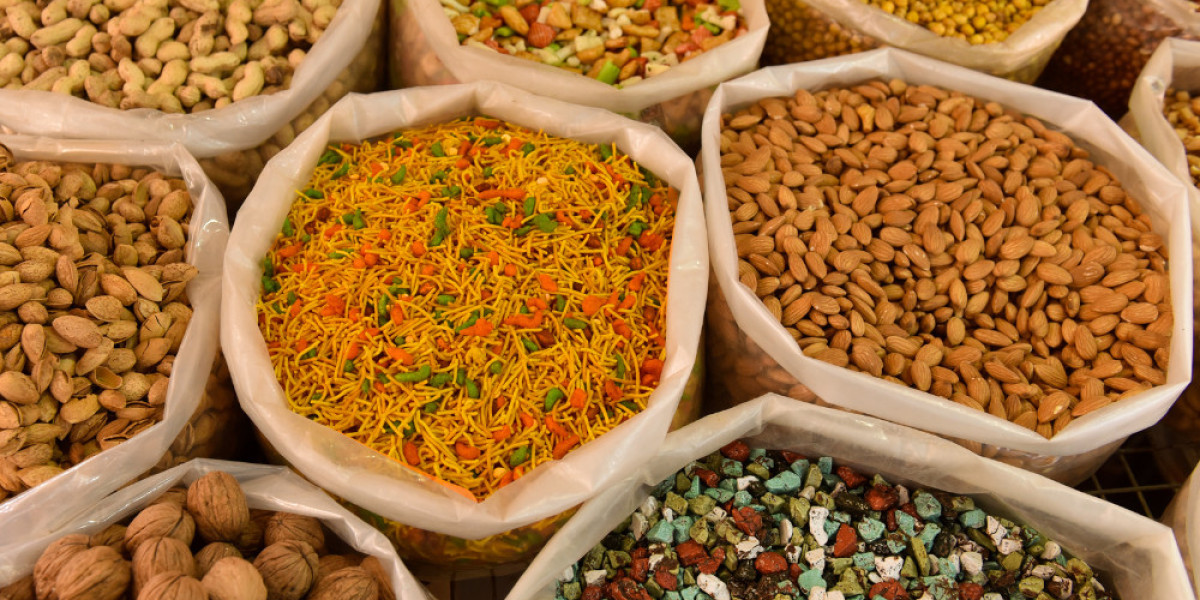In today's world, more people are turning to organic gardening as a way to promote sustainability, health, and environmental well-being. Organic Seeds & Herbs play a crucial role in this movement, offering a natural way to grow nutritious, chemical-free plants. Whether you're a seasoned gardener or a beginner, understanding the benefits and best practices for using organic seeds and herbs can help you cultivate a thriving garden.
This guide will cover everything you need to know about organic seeds and herbs, including their benefits, how to choose the best varieties, planting techniques, and tips for maintaining a healthy organic garden.
What Are Organic Seeds?
Organic seeds are produced from plants that have been grown following strict organic farming standards. These standards prohibit the use of synthetic pesticides, herbicides, and genetically modified organisms (GMOs). Instead, organic seeds are cultivated using natural methods that promote soil health and biodiversity.
Benefits of Organic Seeds:
Non-GMO: Free from genetic modifications.
Chemical-Free: Grown without synthetic pesticides or fertilizers.
Better Adaptation: Often more resilient to local pests and climate conditions.
Supports Biodiversity: Helps preserve heirloom and rare plant varieties.
What Are Organic Herbs?
Organic herbs are plants grown without synthetic chemicals, used for culinary, medicinal, or aromatic purposes. Popular organic herbs include basil, mint, rosemary, thyme, and cilantro. Growing herbs organically ensures they retain their natural flavors and health benefits.
Benefits of Organic Herbs:
Rich in Nutrients: Higher levels of vitamins, minerals, and antioxidants.
No Harmful Residues: Safe for consumption without chemical exposure.
Enhanced Flavor & Aroma: Naturally robust taste and fragrance.
Medicinal Properties: Many herbs have natural healing benefits.
Why Choose Organic Seeds & Herbs?
1. Health Benefits
Organic seeds and herbs are free from harmful chemicals, making them safer for consumption. They also tend to have higher nutritional value compared to conventionally grown varieties.
2. Environmental Sustainability
Organic farming practices reduce pollution, conserve water, and enhance soil fertility. By choosing organic, you support eco-friendly agriculture.
3. Better Taste & Quality
Many gardeners and chefs prefer organic herbs for their superior flavor and aroma. Organic seeds often produce more vibrant and flavorful crops.
4. Supporting Ethical Farming
Purchasing organic seeds and herbs encourages sustainable farming practices and fair labor conditions.
How to Select the Best Organic Seeds & Herbs
1. Look for Certified Organic Labels
Ensure the seeds and herbs are certified by reputable organizations like USDA Organic, EU Organic, or other recognized certifying bodies.
2. Choose Heirloom & Open-Pollinated Varieties
These seeds are naturally pollinated and produce plants true to their parent, ensuring consistency in flavor and growth.
3. Consider Your Climate & Soil
Select seeds and herbs that thrive in your local growing conditions for better success.
4. Buy from Trusted Suppliers
Purchase from reputable organic seed companies or local farmers' markets to ensure quality
Planting & Growing Organic Seeds & Herbs
1. Preparing the Soil
Use compost and organic matter to enrich the soil.
Ensure proper drainage to prevent root rot.
2. Sowing Seeds
Follow planting depth and spacing guidelines.
Start seeds indoors if needed, then transplant.
3. Watering & Care
Water consistently but avoid overwatering.
Use natural pest control methods like companion planting.
4. Harvesting Herbs
Pick herbs in the morning for the best flavor.
Dry or freeze excess herbs for long-term storage.
Common Challenges & Solutions in Organic Gardening
1. Pest Control
Use neem oil, garlic spray, or introduce beneficial insects like ladybugs.
2. Disease Prevention
Rotate crops and avoid overcrowding plants.
3. Weed Management
Mulch with straw or leaves to suppress weeds naturally.
Conclusion
Organic seeds and herbs offer a sustainable, healthy, and flavorful way to grow your own food and medicinal plants. By choosing organic, you contribute to a healthier ecosystem while enjoying the freshest, most nutritious produce possible. Whether you're growing herbs for cooking, seeds for future harvests, or simply embracing a greener lifestyle, organic gardening is a rewarding and environmentally conscious choice.








